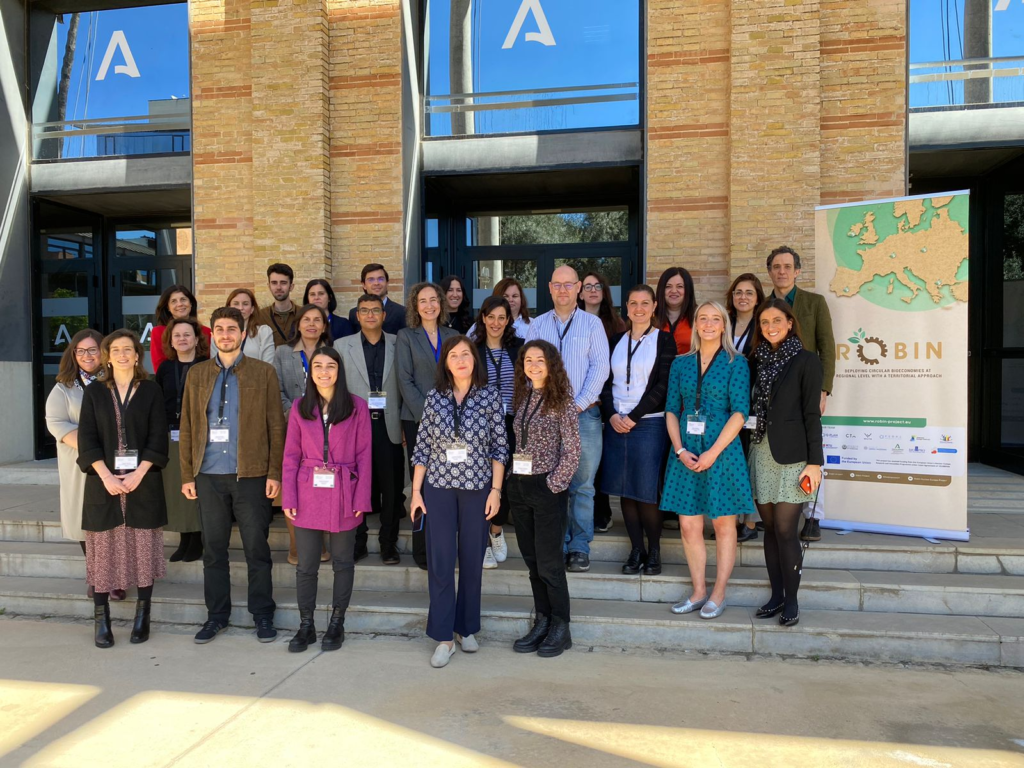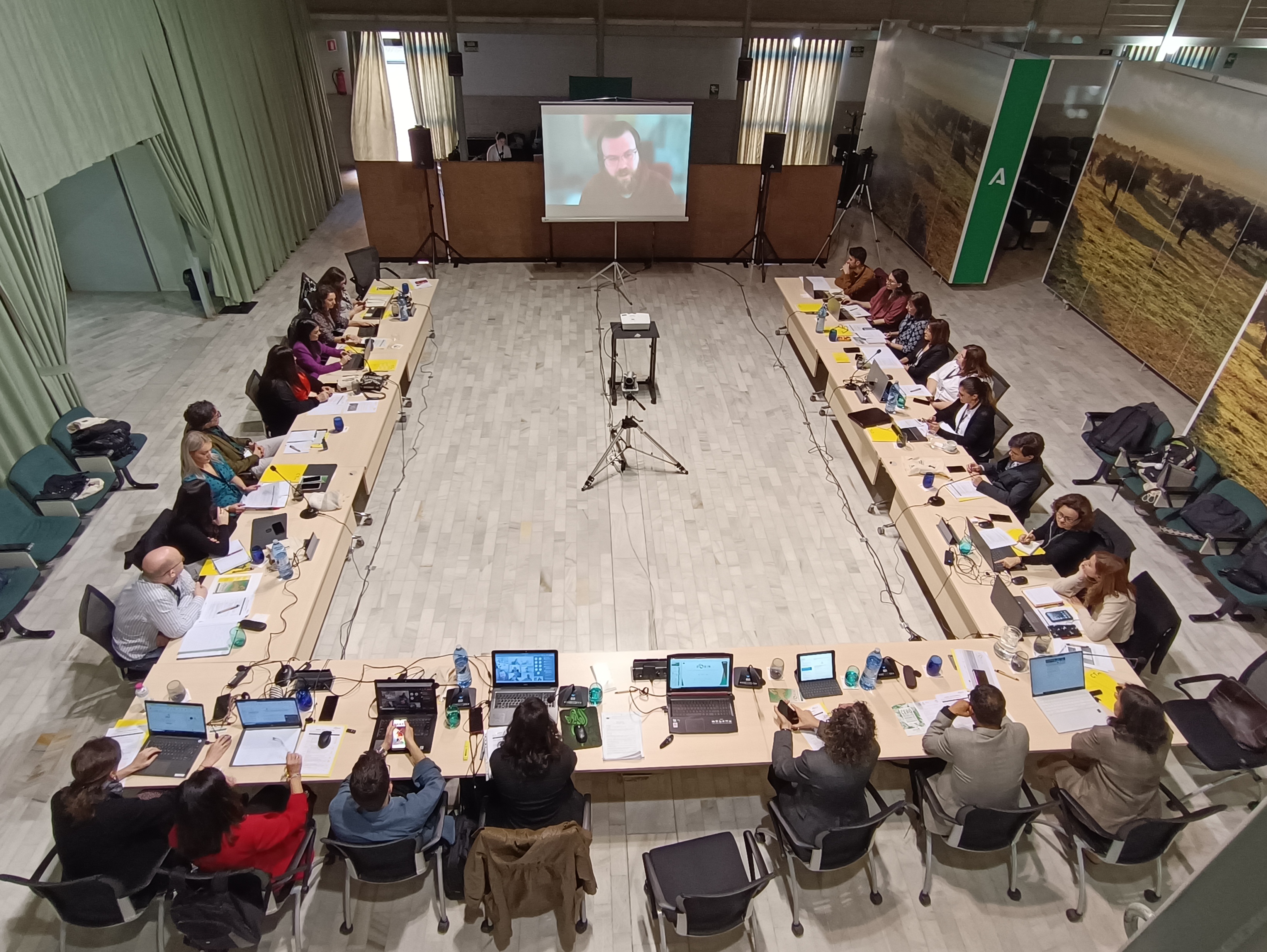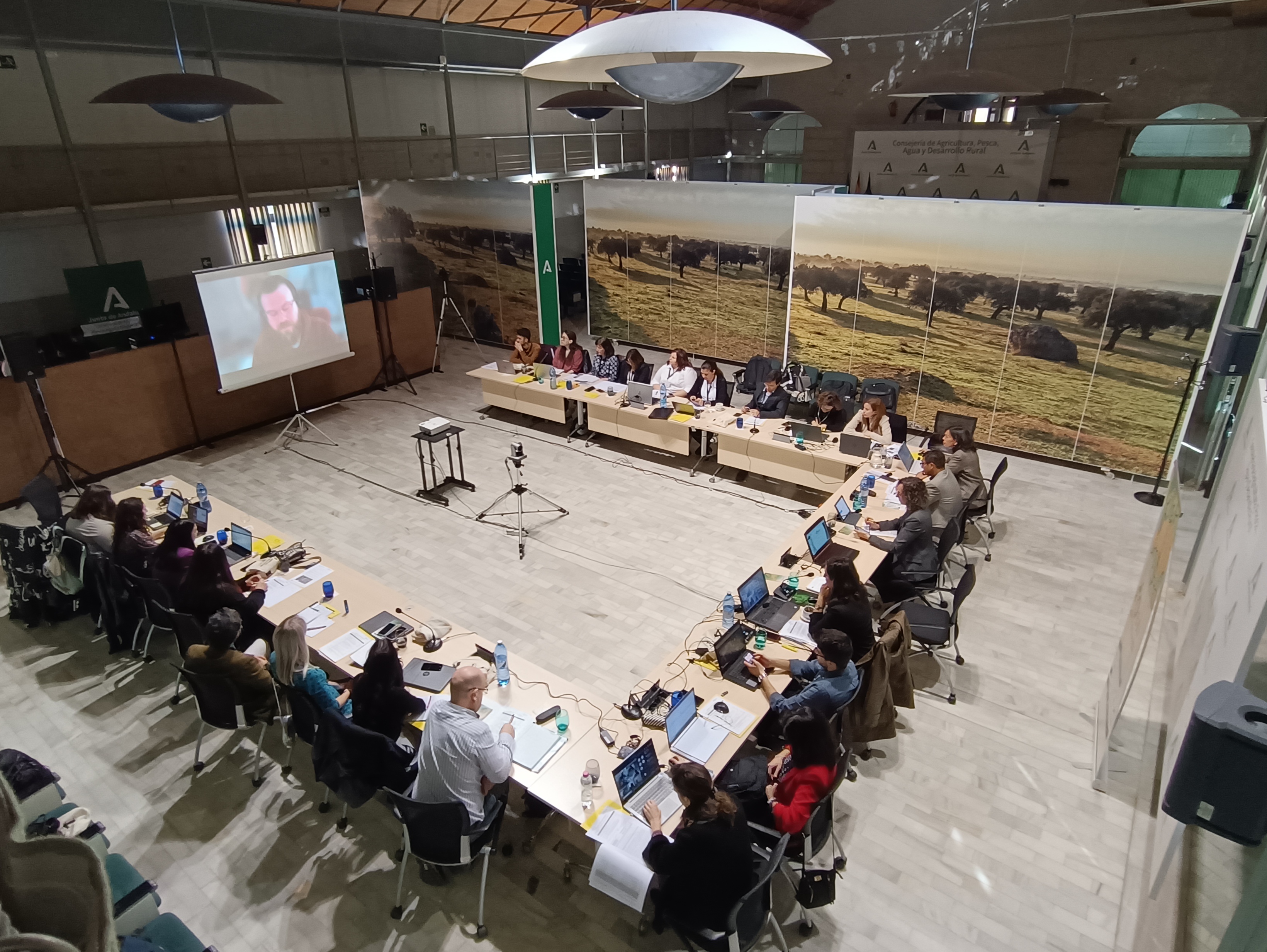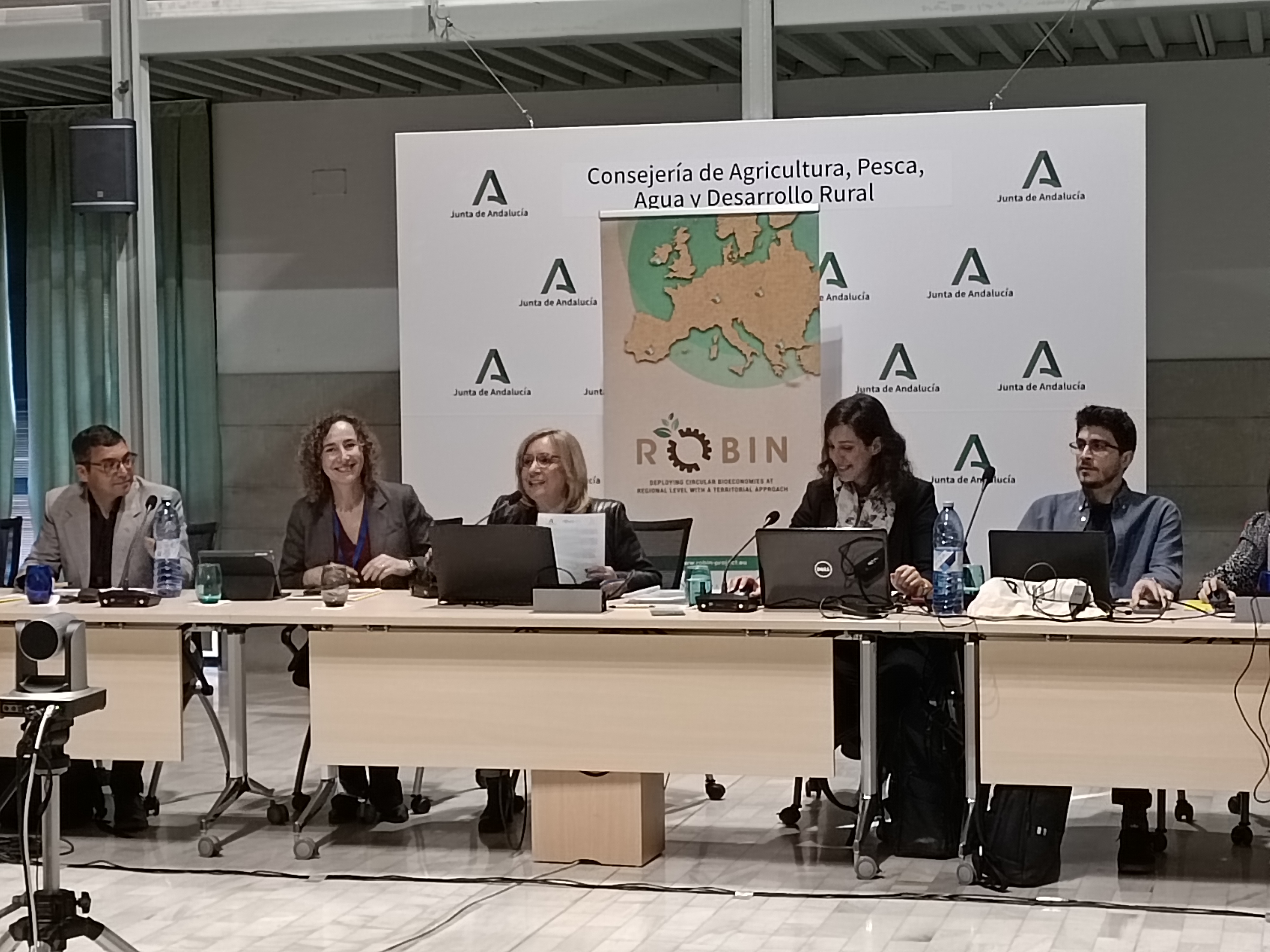
More than 30 European experts in Circular Bioeconomy have met this week in Seville in a meeting organized, within the framework of the European project ROBIN, by Consejería de Agricultura, Pesca, Agua y Desarrollo Rural (the Ministry of Agriculture, Fisheries, Water and Rural Development) of the Junta de Andalucía, IFAPA and CTA (Technological Corporation of Andalusia).
The event, held at the headquarters of the Consejería de Agricultura, was inaugurated by the General Secretary for Agriculture, Livestock and Food, Consolación Vera, who highlighted that Andalusia is a pioneer region in this field in Europe, with an exclusive Strategy on Circular Bioeconomy, which aims to develop a new way of producing and consuming to respond to environmental and social challenges and, at the same time, generate new opportunities for economic development and employment.

Andalusia will be one of the 5 pilot regions of the EU used in the ROBIN project to promote these new innovative governance models that help to promote the Circular Bioeconomy.
In the meeting, 25 representatives of the 13 European partners of the project participated in person, in addition to the online participation of other representatives and the 11 members of the Advisory Board, an advisory body of experts from different universities and public bodies, including the Bio-based Industries Consortium (BIC).
The attendees worked on the different work packages of the project, with special attention to the creation of the Multi-Stakeholder Regional Constellations (MARC) and the preparation of the next co-creation workshops to propose new and improved practices and governance models that help promote the Circular Bioeconomy.
Accelerating the Green Trasition

The European ROBIN project, financed by the Horizon Europe program, aims to promote innovative governance models in Circular Bioeconomy to help regional Administrations to accelerate the green transition.
Led by the Greek partner Q-PLAN, the ROBIN project has the full title “Deploying circular BIOeconomies at the regional level with a territorial approach” and lays the foundations to empower and fulfill the role of European regional authorities to use social innovation techniques and shape their governance structures within the framework of the Circular Bioeconomy.
The Bioeconomy has the potential to contribute substantially to the objectives of the European Green Deal and, at the same time, Europe’s regional authorities have a crucial role to play as agents of inclusive and resilient economic development for their territories. The ROBIN project aims to clarify how Europe’s regional administrations can explore their potential for Bioeconomy governance schemes so that they can contribute to the European Union’s mission for a faster green transition.

Consejería de Agricultura will contribute to improving its regional Circular Bioeconomy governance model by updating its Andalusian Circular Bioeconomy Strategy and will contribute its experience in terms of developing tools for the design of Bioeconomy strategies. Likewise, IFAPA will contribute to the project with its experience in the development of innovative practices in different areas of the Bioeconomy, such as those carried out to remanufacture the supply chain to achieve a zero level of inorganic waste and demonstration and information activities for management sustainable management of waste in the agri-food sector. CTA will lead the cocreation of governance models and the design of regional action plans, working with all the regions involved in the project. In addition, CTA will coordinate the exchange of good practices and lessons learned between the partners, promoting the development of transregional partnerships for the implementation of the bioeconomy.
The project will facilitate greater stakeholder engagement in the Circular Cities and Regions Initiative (CCRI-CSO), launched by the European Commission as part of the Circular Economy Action Plan and aimed at supporting stakeholders in all cities. and regions of Europe to implement the transition to a circular economy.

